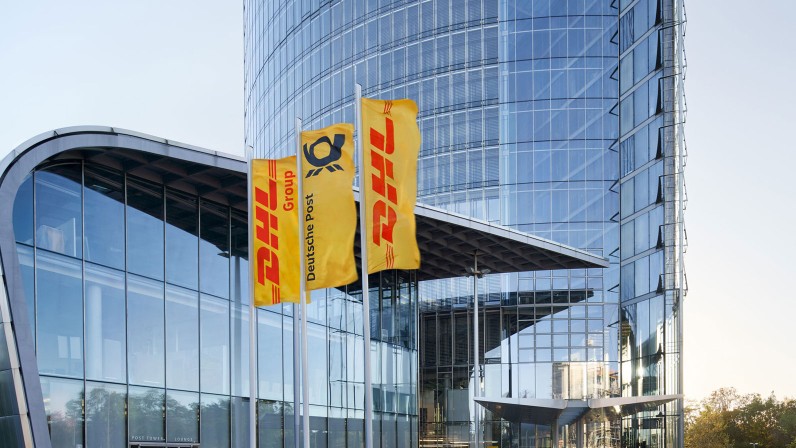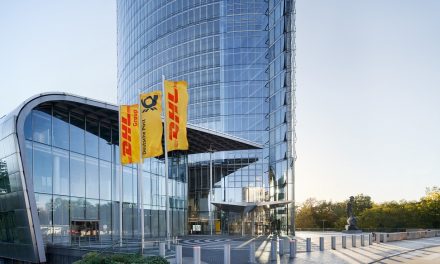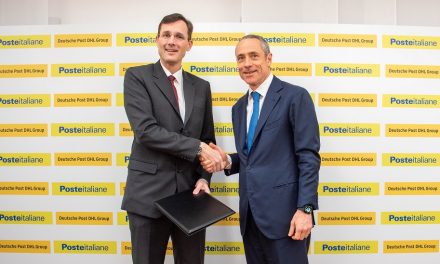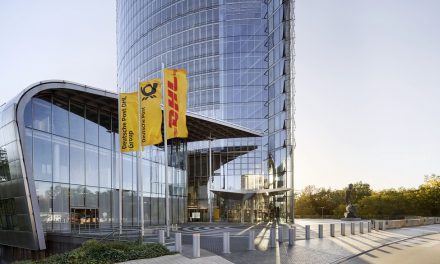
DHL Group CEO: Even under these conditions, we achieved our targets for the year

DHL Group achieved revenue of €81.8 billion (2022: €94.4 billion) and operating profit (EBIT) of €6.3 billion (2022: €8.4 billion) in fiscal 2023.
Even in the absence of a significant recovery in the global economy, DHL Group has thus achieved its earnings forecast, which was at least EUR 6.2 billion. Free cash flow excluding net M&A was €3.3 billion (2022: €4.6 billion), above the forecast of €3 billion for 2023. With EBIT and free cash flow significantly above the levels of the pre-pandemic year 2019, the Group has thus demonstrated its strengthened profitability even in a market environment that remains extremely weak.
Tobias Meyer, CEO DHL Group commented: “The year 2023 was marked by a weak global economy and, above all, weak global trade. Even under these conditions, we achieved our targets for the year. Our high profitability allows us to continuously invest in our network, sustainability, digitalization and e-commerce, thus further improving quality for our customers. In 2024, major uncertainties such as volatility in demand and geopolitical crises will remain with us. However, we are very well positioned for the opportunities and challenges of 2024.”
Thanks to its comprehensive portfolio of logistics services, the Group was able to partially compensate for the weak economic conditions. DHL Express volumes declined for the second year in a row, albeit less sharply than the market average. DHL Global Forwarding, Freight faced headwinds from lower freight volumes and the expected normalization of freight rates. DHL Supply Chain’s business, on the other hand, grew. DHL eCommerce and the German parcel business benefited from the intact structural trend of e-commerce. However, the results of the Post & Parcel Germany Division reflect the poor regulatory framework for the German mail business.
The performance of DHL Group’s global logistics portfolio is also reflected in the cash flow development: The Group’s free cash flow was at a high level of €2.9 billion despite lower EBIT (2022: €3.1 billion). The robust development of free cash flow also confirms that the measures in place to safeguard earnings and cash flow are taking effect. The Group is successfully implementing price adjustments in unregulated product segments as well as a disciplined program to further improve its cost structure.
Overall, DHL Group generated net income after non-controlling interests of €3.7 billion in fiscal 2023 (2022: €5.4 billion). Basic earnings per share for the same period amounted to EUR 3.09, compared with EUR 4.41 in the previous year.
Continued high investments in global logistics network, sustainability, digitalization and e-commerce
In the 2023 financial year, gross capital expenditure (capex) amounted to €3.4 billion (2022: €4.1 billion). Despite the lack of a global economic recovery, the Group continued to invest continuously in the quality of its services. The investment priorities included strengthening the global network and the growth area of e-commerce, as well as the further expansion of a low-emission logistics infrastructure and a low-emission vehicle fleet. Through digitalization measures such as the use of artificial intelligence, the Group achieved further improvements in operations and in the interfaces with customers. DHL Supply Chain, in particular, has expanded the use of robots in 2023 as well: The division’s employees are already supported by robots or automated processes in 15 percent of all picking operations.
Stable dividend; Share buyback program extended and increased
At the Annual General Meeting on May 3, 2024, the Executive Board and Supervisory Board will propose a dividend of EUR 1.85 per share (2022: EUR 1.85 per share). Subject to shareholder approval, the Group would thus pay out a total of EUR 2.2 billion. Based on the dividend proposal, the payout ratio of 59 percent would be at the upper end of the target corridor of 40 to 60 percent.
The existing share buyback program (2022 to 2024) will be extended until 2025 and the volume will be increased by EUR 1 billion to EUR 4 billion. In the year under review, shares with a total value of EUR 925 million were purchased.
“The strategic investments of recent years have structurally improved our financial strength. We benefit from this even in periods of weak economic momentum. In addition, we were able to optimize the price and cost structure in 2023. As a result, DHL Group is in a robust position and stands for dividend continuity.”
Melanie Kreis, CFO DHL Group
Sustainability: Decrease in GHG emissions compared to the previous year
In addition to its financial targets, DHL Group is pursuing clear, measurable environmental, social and governance goals as part of its Strategy 2025. For example, logistics-related greenhouse gas (GHG) emissions are to be reduced to below 29 million tonnes of CO2 equivalents (CO2equivalents) by 2030 (Scopes 1, 2 & 3) in line with the Science Based Targets initiative. In the year under review, GHG emissions developed better than expected at 33.3 million tonnes of CO2e (target value 2023: maximum 39 million tonnes of CO2e, 2022: 36.6 million tonnes of CO2e). This development can be attributed to declining transport volumes and decarbonisation measures, such as the electrification of the vehicle fleet. In 2023, DHL Group used around 35,200 e-vehicles for pick-up and delivery (2022: approx. 27,800) and a total of over 25,000 e-bikes, e-trikes and cargo bikes. In addition, further multi-year contracts for sustainable aviation fuels (SAF) were concluded.
The Group’s key non-financial figures were achieved in the period under review. As a result, DHL Group was able to save 1.3 million tonnes of CO2e as planned through decarbonisation measures. Employee satisfaction remains at a high level of 83 percent – the target value of over 80 percent for the financial year was exceeded. DHL Group also exceeded its target of 690 points in the external cybersecurity rating and achieved 750 out of a maximum of 820 achievable points.
Further information on progress and measures in the areas of environmental, social and governance issues can be found in the Annual Report .
Despite persistently weak global economy: EBIT forecast above pre-pandemic 2019 levels
For the first half of 2024, DHL Group still does not expect a broad economic upturn, but rather a market volume that will decline even further. In the second half of the year, the Group anticipates a more positive global economic momentum compared to the previous year. For the 2024 financial year, DHL Group forecasts EBIT of between €6.0 billion and €6.6 billion and cash flow excluding net M&A of around €3.0 billion.
In its medium-term forecast for 2026, DHL Group expects an operating profit of between 7.5 and 8.5 billion euros.
Express: Highly profitable despite weak global trade
The high level of economic uncertainty worldwide and consumer reluctance was reflected in lower B2B volumes compared to previous years. As a result of persistently weak market conditions, daily time-definite international (TDI) shipment volumes declined by 2.5 percent. Significant negative currency effects of EUR 1.2 billion and lower fuel surcharges had a negative impact on DHL Express’ business. Excluding currency effects and fuel surcharges, sales fell by 4.8 percent in the year under review. The division responded to the macroeconomic environment with continuous productivity improvements, optimized use of network capacity and effective cost management. In the wake of persistent inflation, price adjustments were systematically implemented.
Global Forwarding, Freight: Normalization of freight rates in a weak market environment
Market volumes at DHL Global Forwarding, Freight were lower than in the previous year due to weak demand, but stabilized over the course of the year. Air and ocean freight rates continued to normalize as expected. In the European road freight transport market, the cyclical decline in demand continued. Costs remained at a high level due to higher diesel and vehicle prices as well as personnel costs, among other things.












